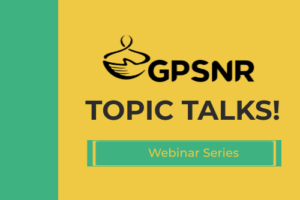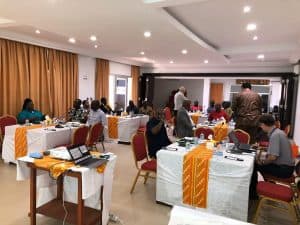Strategy and Objectives Working Group
The working group includes both the Risk subgroup and the Assurance Model task force and is currently working on some exciting stuff!
The Risk subgroup has been busy, with consortiums Agridence and Koltiva having kick started their pilot field trials on the traceability tools. They are actively pursuing the next steps for the deliverable from ASI on the Risk Assessment Framework. This includes conducting internal piloting and cross-walking the tool with GPSNR commissioned studies to identify gaps. Lastly, second in an ongoing series, the Traceability Tools Webinar will be occurring on 26th April and you may register for it here.
The Assurance Model taskforce will be meeting to discuss updates on KPI alignments, due diligence system and the members progress model.
Smallholders Representation and Capacity Building (SCB) Working Group
The SCB Working Group has proposed a new structure with three co-chairs and this has been officially endorsed. The next Working Group meeting will take place on 27th April, where they plan to formally endorse the Terms of Reference.
Updates on the Income Diversification and Rubber Agroforestry taskforce, the strategy for 2023-2024 has been endorsed, and the taskforce will continue their work on planning the schedule and sequence of workshops and finalising the contractual plan.
On the Digital Knowledge Sharing Platform front, Koltiva will work together with the taskforce to start developing the app and its features. In upcoming news, the Thailand Good Agricultural Practices (GAP) subgroup will publish the tender soon.
Policy Toolbox Working Group
Input has been collected on the reporting process from members through the Year 1 Reporting Review Survey. As part of this review, stakeholder- specific meetings will be conducted to collect more feedback on the reporting process. Based on the Year 1 Reporting Review results, any changes will be assessed to the reporting framework and its details (i.e., Process, Extensions, Questions), and disclosure requirements will need to be agreed on for reporting Years 2 and 3 (Transporting Reporting Roadmap- TRR). Future actions will require the reporting guidance for Year 2 to be improved according to changes proposed to the reporting matrix.
An RFP for consultants has recently been published to look into proposing a quantitative orientation for the reporting matrix and do a crosswalk with other reporting frameworks (CDP Forest, GRI and ZSL-SPOTT). On news of the Assurance Model front, what follows would be to finalise Compliance Panel Terms of Reference and operational guidance based on the Assurance Model.
Shared Responsibility Working Group
During the physical meeting in January- February, the Governance and Guiding Principles were presented, Manufacturers will provide a revised document of said principles by April.
Next phases for the Working Group are pending the outcomes of discussions on shared investment principles, which are currently happening on the Manufacturers category level. The Working Group will revamp data sharing and value transfer discussions once the proposal from the Manufacturers is available.






